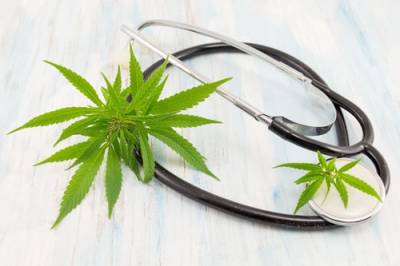
New York is one of the 29 states, plus the District of Columbia, that have legalized the use of marijuana for medical purposes. However, the possession and use of marijuana remains illegal under federal law. This obviously contradictory position between federal and state law on the use of marijuana has created serious questions both in New York and across the country, particularly when it comes to workplace rules.
The Compassionate Care Act
The Compassionate Care Act (CCA) was passed in 2014 and went into effect in January 2016. The law allows the manufacture, sale, and use of medical marijuana in the state of New York. The CCA is scheduled to be in effect for seven years, after which it will automatically expire unless it is renewed.
Effects of CCA on Employment Law
A “certified” medical marijuana patient is deemed to be a disabled person and therefore protected from employment discrimination. At least this is the position taken by some civil rights advocates and labor management organizations such as the Society for Resource Management. However, this view has not been tested in any New York court but there is a good chance there are cases percolating up the system and will sooner or later address this question.
Drug Testing for Employment
Even those who argue that a marijuana medical patient is a disabled person and is therefore protected against discrimination at work, they recognize and agree that employers do have a right and will continue to conduct drug testing as a matter of policy. If an employee is impaired by drug use while at work, the employer has every right to prohibit that employee from working. This is no different than the approach taken with other prescription drugs that are capable of causing cognitive or physical impairment.
Who is a “Certified” Marijuana Medical Patient?
A certified medical marijuana patient is a patient who is a resident of New York state or receiving care and treatment in New York state as determined under the law. A patient can only be certified under this law if the following requirements are met:
- The practitioner certifying the patient has been registered with the appropriate New York state department to issue a certification as determined by the Health Commissioner;
- The patient has a serious condition, which shall be specified in the patient’s health care record;
- The practitioner by training or experience is qualified to treat the serious condition;
- The patient is under the practitioner’s continuing care for the serious condition;
- In the practitioner’s professional opinion and review of past treatments, the patient is likely to receive therapeutic or palliative benefit from the primary or adjunctive treatment with medical use of marijuana for the serious condition.
- Disclosing Marijuana Use
Because of this law, some job seekers or those already employed voluntarily disclose their use of marijuana, assuming this law protects them against any adverse action by the employer when they test positive for marijuana use. However, even though this issue has not been addressed or resolved in New York, other states have held that state marijuana laws are trumped by federal law that makes the use of marijuana illegal with no exceptions. These states have also held that the use of marijuana is not protected under the American with Disabilities Act (ADA).
A Manhattan Medical Marijuana Use Employment Lawyer Can Help
At JOEY JACKSON LAW, PLLC, we have more than 25 years of experience handling a variety of issues and our lawyers know how to handle complex and emerging legal issues such as medical use of marijuana and employment. If you are a certified medical marijuana user and are having issues or are an employer seeking guidance on this subject, contact an experienced New York City employment law attorney today. Call 1-833-JOEYJACKSON or 1-833-563-9522 for an appointment.
Source:
https://nyassembly.gov/leg/?bn=A06357E&term=2013&Summary=Y&Actions=Y&Votes=Y&Memo=Y&Text=Y
